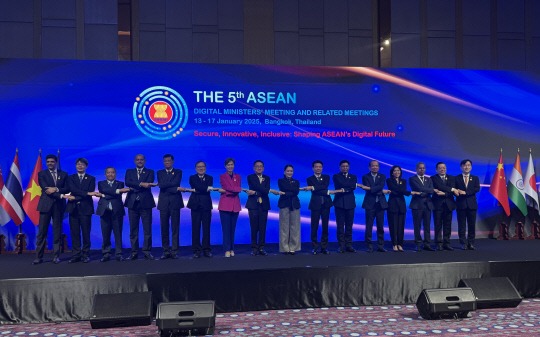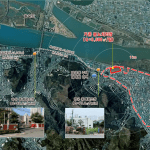Seoul, South Korea – In a bold step toward fostering regional cooperation and technological advancement, South Korea announced the launch of the Korea-ASEAN Digital Innovation Flagship Project (KADIF) at the 5th ASEAN Digital Ministers’ Meeting held in Bangkok on January 16, 2025. This ambitious $30 million initiative, funded through the Korea-ASEAN Cooperation Fund, aims to enhance digital infrastructure, cultivate talent, and accelerate economic growth across the ten ASEAN member nations over the next five years.
South Korea’s Ministry of Science and ICT emphasized the transformative potential of the initiative. The flagship project is designed to address persistent digital disparities within ASEAN, empowering countries to leverage cutting-edge technology while fostering sustainable development.
This initiative comes on the heels of South Korea and ASEAN elevating their relationship to a Comprehensive Strategic Partnership during the Korea-ASEAN Summit in 2023. The project reflects South Korea’s commitment to advancing this partnership by acting as a global leader in digital innovation.
ASEAN, a region rich in youthful energy and economic potential, has faced challenges in building robust digital infrastructure. South Korea’s expertise and resources are poised to bridge these gaps, aligning with ASEAN’s vision of a digitally connected and inclusive economy.
“The flagship project is more than an investment in technology; it’s an investment in the future,” a ministry official noted. “Through collaboration, we are unlocking opportunities for shared growth and innovation.”
The Korea-ASEAN Digital Innovation Flagship Project (KADIF) is structured around five core initiatives, each designed to promote digital integration and innovation across ASEAN countries. These initiatives reflect South Korea’s commitment to addressing the region’s digital challenges while fostering sustainable growth.
One of the key components of the project is the establishment of a shared data ecosystem. This initiative aims to create a collaborative digital environment where data can be seamlessly accessed and utilized by ASEAN nations. By improving data accessibility and integration, the ecosystem is expected to lay the groundwork for advanced applications in various sectors.
The project will also focus on setting up high-performance computing centers to enhance technological infrastructure. The first of these state-of-the-art facilities will be established in Indonesia in 2025. These centers are designed to support complex digital research and innovation, enabling ASEAN countries to expand their technological capabilities and keep pace with global advancements.
To address the region’s growing need for skilled professionals, the project includes the development of Digital Academies. These academies will serve as training hubs, equipping a new generation of digital experts and leaders with essential skills. The initiative will begin with the launch of academies in Indonesia and Laos, with plans to expand to other ASEAN nations in the coming years.
Another significant aspect of KADIF is the introduction of AI innovation competitions, which will be held annually. These events are designed to inspire startups and young innovators across ASEAN to develop creative solutions to real-world challenges. By encouraging ingenuity and entrepreneurial spirit, the competitions aim to position ASEAN as a thriving hub for technological innovation.
Finally, the project emphasizes the development and application of AI solutions to address regional challenges. Customized AI technologies will be deployed to tackle pressing issues, including improving healthcare access, promoting environmental sustainability, and bolstering economic resilience. These solutions are intended to create meaningful and measurable impacts across the region, supporting ASEAN’s efforts toward inclusive and sustainable development.
Through these comprehensive initiatives, KADIF is set to transform ASEAN’s digital landscape, fostering innovation, bridging gaps in digital infrastructure, and empowering the region’s youth and businesses to thrive in the global digital economy.
The launch of KADIF signals a transformative moment for ASEAN nations, providing tools and resources to bridge existing digital divides. By strengthening infrastructure and fostering innovation, the initiative is set to unlock economic opportunities, particularly for startups and young professionals.
Moreover, the project underscores South Korea’s growing influence in the global digital economy. By leveraging its technological expertise, South Korea is not only boosting its regional presence but also demonstrating its role as a responsible and forward-looking partner.
The KADIF initiative is also part of South Korea’s broader strategy to collaborate with global partners on digital governance. In tandem with its work in ASEAN, South Korea is engaging with the United States and Japan to address international concerns about AI safety and ethical governance.
Through such efforts, South Korea is creating a framework for long-term, inclusive growth, positioning itself as a digital leader in Asia and beyond.



